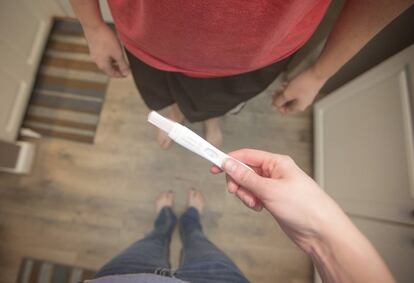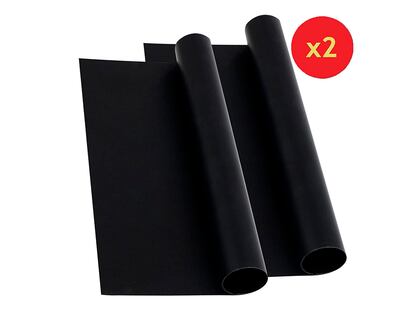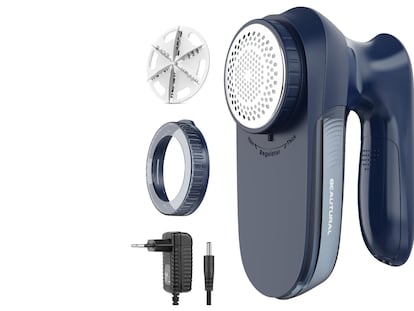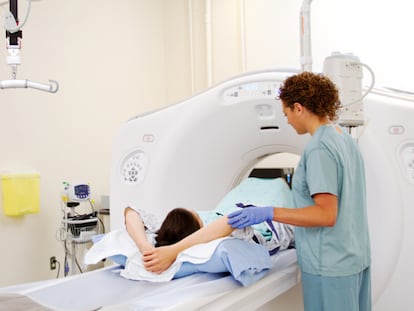Having trouble conceiving? This condition could be to blame
Varicocele affects up to three million men a year and has been linked to male infertility

Infertility is traditionally presumed to be a womanˇŻs issue. Yet men turn out to be the sole cause in around one in every three cases. Failure to conceive is defined as clinical infertility when a couple cannot get pregnant after 12 months or more of regular, unprotected sexual intercourse.
Male infertility can be due to several reasons including drug abuse, toxic environments, heat, chronic disease, obesity, or stress. But another reason that affects up to three million men a year is a condition called varicoceles.
Men with varicocele veins may experience pain, swelling and infertility
Varicoceles are veins that become enlarged inside a manˇŻs scrotum ¨C like a varicose vein in a leg. The scrotum is a sac that holds the testicles and is part of the male reproductive system that makes, stores, and moves sperm. The testicles make sperm and the hormone testosterone. Sperm that are in the process of maturing will move through the epididymis, a coiled tube behind each testicle.
Men who have varicocele veins may experience pain, swelling, atrophy or shrinkage and/or infertility. More than one vein can be affected and may appear bunched together like a ˇ°bag of worms.ˇ±
What causes varicoceles?
Veins within the scrotum contain one-way valves that allow blood to flow from the testicles and scrotum back to the heart. When these valves fail, blood pools and the increased pressure enlarges the veins around the testicle in the scrotum ¨C resulting in the development of a varicocele.
How do varicoceles cause infertility?
There are several ways that varicoceles could affect a manˇŻs fertility:
- Lower sperm count
In order for sperm to develop and for spermatogenesis to proceed normally, scrotal temperature needs to be about 2?F lower than the rest of the body. But varicoceles cause blood to pool in the scrotum leading testicular temperatures to rise and sperm production to drop. Sperm count drops 40% for every degree of elevated temperature in the scrotum and testes.
- Low testosterone
Varicoceles may cause low testosterone levels in the testicles, which could lead to lower fertility.
- DNA damage in sperm
Varicoceles have been attributed to DNA damage in sperm. Studies have suggested that men with varicocele have more damaged sperm than men who do not suffer from the condition.
Symptoms of varicoceles
Generally, most men with varicoleses do not have any symptoms. However, some men may experience one or more of the following:
- Pain ¨C Men may experience testicular pain when standing or sitting for a long time or when exercising. It has also been described as a dull ache or a feeling of heaviness or discomfort that disappears when a man lies down.
- Testicle size ¨C Atrophy or shrinkage of the testicle may occur.
- Appearance of a vein ¨C Veins in the scrotum may appear larger than normal, twisted or worm-like.
- Infertility ¨C Difficulty in being able to conceive a child.
How to treat varicoceles
In most cases, varicoceles are left untreated as there is no medication to treat or prevent them. But treatment may be offered to men who are experiencing fertility problems or pain. If a child has varicoceles and his left testicle is growing more slowly than the right, treatment may also be provided. Men who are in pain may be offered painkillers such as acetaminophen or ibuprofen.
Varicoceles causes? testicular temperature to rise which can lower sperm production
It is believed that boys with smaller testicles may have a higher risk of fertility problems when they are older.
There are two main options for treatment that a man can discuss with his doctor:
- Surgery ¨C Varicocele surgery could include open surgery, laparoscopy or microsurgery by a urologist. With each option, the veins affected are permanently tied off to prevent continued abnormal blood flow.
- Embolization ¨C An alternative surgery, this minimally invasive, image-guided procedure is performed by an interventional radiologist. Embolization is as effective as surgery but there is less pain and risk and a shorter recovery time.
Dr. Samadi is a board-certified urologic oncologist trained in open and traditional and laparoscopic surgery and is an expert in robotic prostate surgery. He is chairman of urology, chief of robotic surgery at Lenox Hill Hospital. He is a medical contributor for the Fox News Channel's Medical A-Team. Follow Dr. Samadi on Twitter, Pinterest, SamadiMD.com, davidsamadiwiki, davidsamadibio and Facebook.
Tu suscripci¨®n se est¨˘ usando en otro dispositivo
?Quieres a?adir otro usuario a tu suscripci¨®n?
Si contin¨˛as leyendo en este dispositivo, no se podr¨˘ leer en el otro.
FlechaTu suscripci¨®n se est¨˘ usando en otro dispositivo y solo puedes acceder a EL PA?S desde un dispositivo a la vez.
Si quieres compartir tu cuenta, cambia tu suscripci¨®n a la modalidad Premium, as¨Ş podr¨˘s a?adir otro usuario. Cada uno acceder¨˘ con su propia cuenta de email, lo que os permitir¨˘ personalizar vuestra experiencia en EL PA?S.
En el caso de no saber qui¨¦n est¨˘ usando tu cuenta, te recomendamos cambiar tu contrase?a aqu¨Ş.
Si decides continuar compartiendo tu cuenta, este mensaje se mostrar¨˘ en tu dispositivo y en el de la otra persona que est¨˘ usando tu cuenta de forma indefinida, afectando a tu experiencia de lectura. Puedes consultar aqu¨Ş los t¨¦rminos y condiciones de la suscripci¨®n digital.


































































